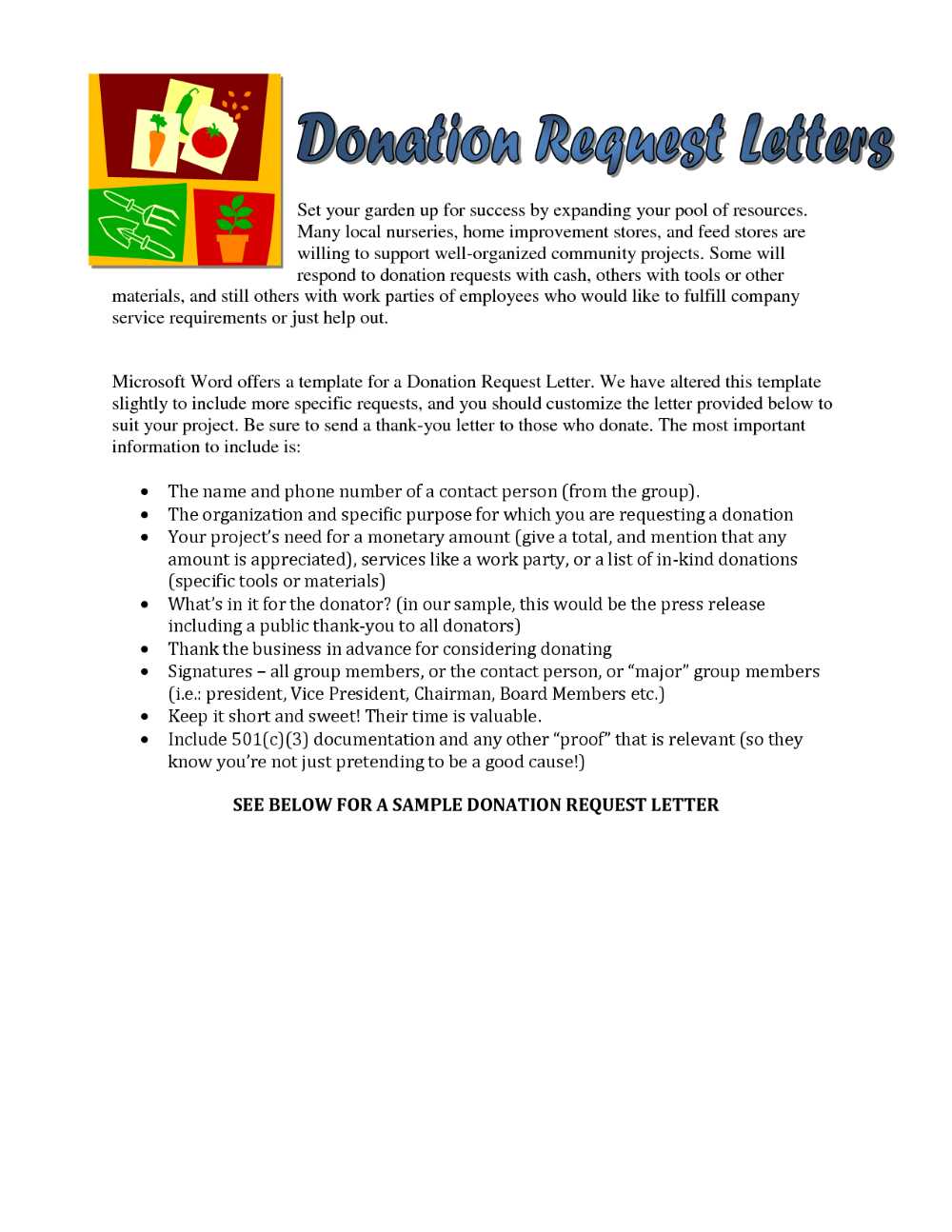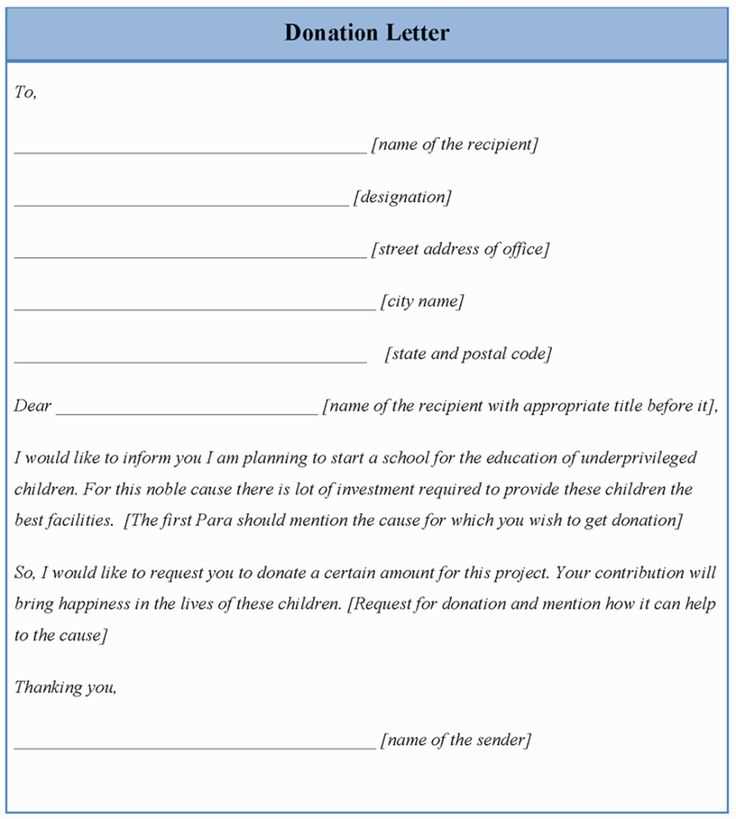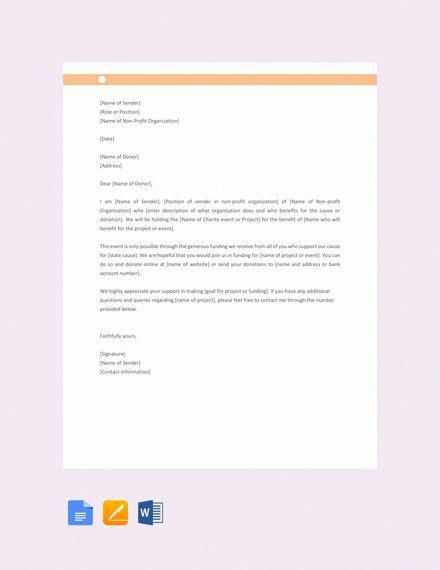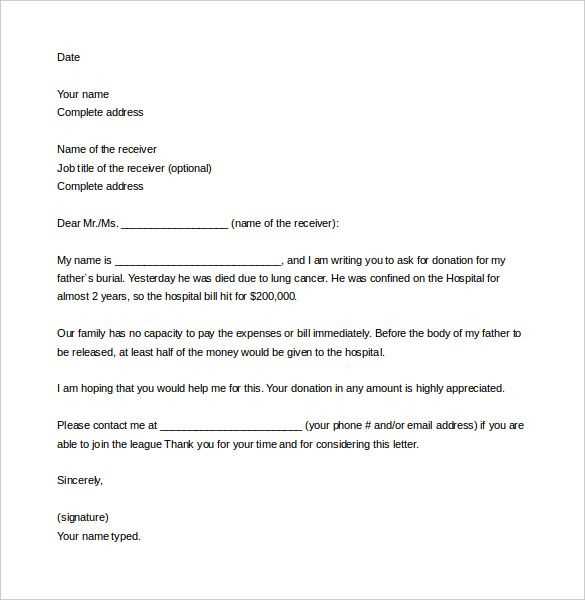Simple Donation Letter Template to Help You Get Started

When reaching out for financial assistance or contributions, it is essential to structure your appeal effectively. A well-crafted request can inspire generosity and encourage positive responses. Understanding the key elements of an effective communication is crucial in engaging potential supporters.
Core Elements of a Successful Appeal

To create an impactful message, there are several factors to consider. The tone, clarity, and personalization of the message play significant roles in its success. Here’s what to include:
- Introduction: Begin by briefly introducing the cause or project. Clearly state your mission or the goal you’re striving to achieve.
- Reason for Request: Explain why support is needed, detailing the challenges or opportunities that arise.
- Impact of Contribution: Highlight how the recipient’s support will directly influence the project or cause.
- Call to Action: Politely request the desired action, whether it’s a monetary contribution, time, or other forms of help.
- Closing: End with a heartfelt thank you and contact information for further inquiries.
Making Your Request Stand Out
Personalization is key when reaching out to individuals or organizations. Tailoring your message to the recipient can make them feel valued and more inclined to contribute. Mentioning past involvement or showing familiarity with their work can strengthen the connection.
Common Pitfalls to Avoid
While it’s important to be persuasive, avoid overwhelming your audience with lengthy or overly complex content. Keep your request clear and concise. Additionally, ensure that your tone remains respectful and professional throughout the message.
Enhancing Your Message with a Professional Format

Structure matters. A well-organized message demonstrates professionalism and can make your appeal easier to read and more persuasive. Break your request into clear sections with appropriate spacing, and always proofread before sending.
How to Craft an Effective Request for Support

Creating a compelling appeal involves more than just asking for help. It requires clarity, sincerity, and a structure that engages potential supporters. The key is to craft a message that not only explains the need but also connects with the recipient on a personal level.
Essential Elements of an Appeal
To ensure your request resonates, make sure to include the following elements:
- Introduction: Briefly explain who you are and the purpose of your appeal. Make it clear and straightforward.
- Explanation of the Need: Provide background on why support is necessary, highlighting the specific issues or challenges at hand.
- Impact of Support: Explain how the recipient’s contribution will make a difference and the positive change it will bring.
- Actionable Request: Clearly outline what you are asking for–whether it’s funds, resources, or volunteer efforts.
- Gratitude and Contact Information: End with a sincere thank you and offer your contact details for further inquiries.
Tips for Personalizing Your Appeal
Tailoring your message is essential in making it more compelling. A generic request is less likely to stand out. Try to mention how the recipient’s involvement aligns with their values or past efforts, making them feel personally invested in your cause.
Common Mistakes to Avoid
Avoid being overly vague or asking for too much. Keep your request concise and direct, as long-winded appeals can lose the reader’s attention. Also, ensure your tone remains respectful and professional, without sounding too demanding.
Designing a Professional Fundraising Appeal
The appearance of your communication can greatly impact its effectiveness. Use clear formatting, easy-to-read fonts, and organized sections to ensure your message is not only compelling but also visually accessible. A professional presentation helps build trust and credibility.
Effective Strategies for Following Up
After sending your request, follow up with a thank-you message regardless of whether the person has contributed. If no response was received, politely remind them of the appeal and restate its importance. Regular, thoughtful follow-ups demonstrate commitment and reinforce the importance of their potential involvement.